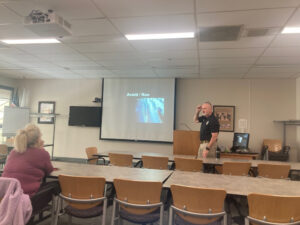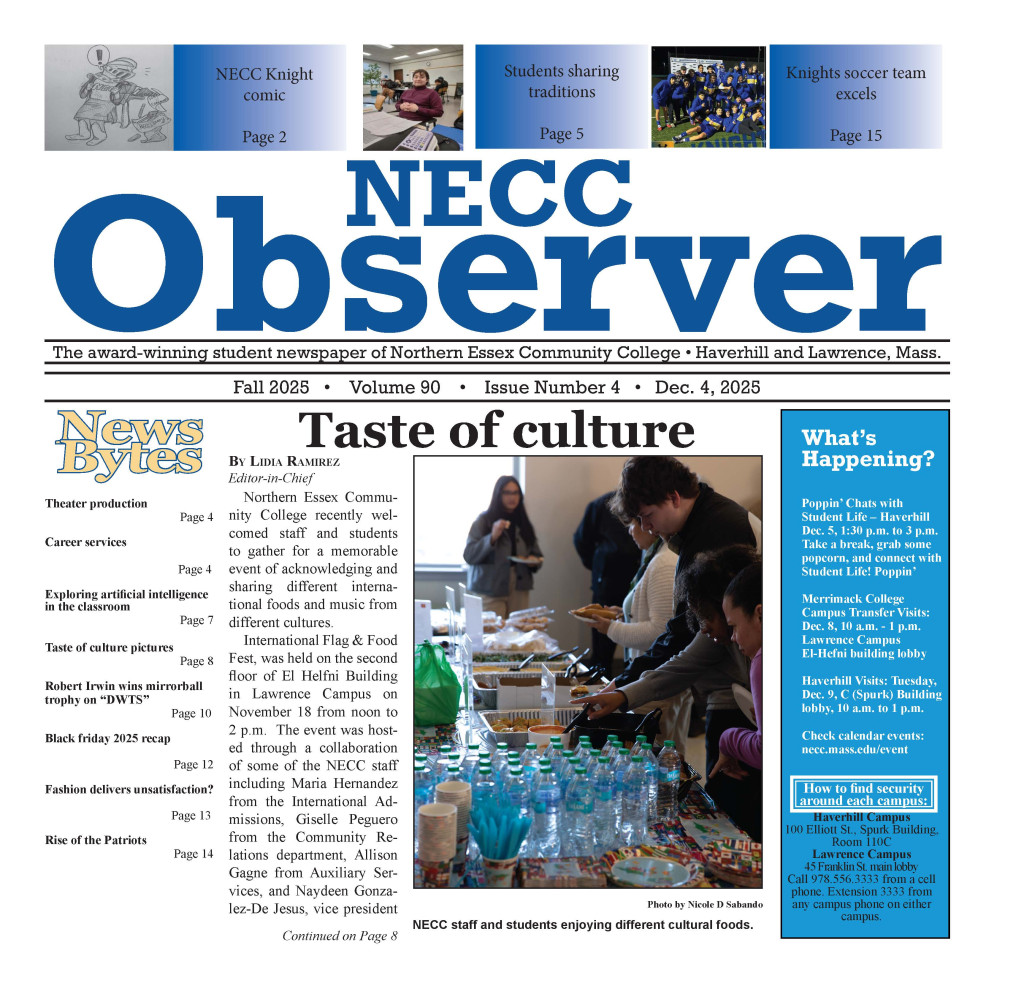The NECC Public Safety recently held a Civilian Response to Active Shooter Events training for college staff. Officer Peter Sheldon led the CRASE workshop.

Officer Peter Sheldon has been with Northern Essex since August 2022. Before joining the Northern Essex Community College Police Department, Sheldon served as a detective and training officer with the Portsmouth, New Hampshire Police Department. Prior to that, Sheldon was a Trooper for the Maine State Police and served in the United States Marine Corps. Officer Sheldon is also an alumnus of Northern Essex, before he graduated from University of Massachusetts Lowell in 1994 with a B.A. in Criminal Justice and Law Enforcement Administration.
Northern Essex staff were invited to attend the workshop. The discussion centered around what steps should be taken to survive an active shooter event. The workshop is designed to “provide strategies, guidance, and a proven plan for surviving an active shooter event,” as stated by the Northern Essex Center for Professional Development.
During the workshop, examples of active shooter events were addressed with learning moments. Topics also included how to set up a plan for civilian responses and how to manage stress during an active shooting event. Officer Sheldon emphasized how important it is for students and staff to know where their exits are in every room.
“Leave as soon as possible, know your exits, consider secondary exits, and call 911. Know what you would do during an event,” says Officer Sheldon.
Examples were shown in the workshop on what to do during the initial seconds and minutes of an active shooter event. Those who identified something was wrong and left the area were able to get out of the danger zone. This increased the survivability rate.
During a stressful event, one of the first things we do is deny. By denying that this is real, we don’t act fast enough. These seconds or even minutes could be crucial to evading the threat.
“If you know it’s gun shots, don’t deny that they are gunshots. Go to that deliberation phase, what am I doing next?” says Officer Sheldon.
The presentation created by Texas Tech emphasized that those who are involved in an active shooting event should run, hide, and fight in that exact order. The discussion emphasized that the first inclination should be to avoid the situation and run. The next step is to hide if there is no exit. The final option is to fight.
When the conversation shifted towards the effort to confront the attacker, it was stated that any means necessary should be utilized to stop the threat. Fire extinguishers, chairs, and office supplies can be used as a weapon to thwart the attacker’s ability to kill more victims.
“Shift your emotions, get angry. Understand the gravity of the situation when dealing with a determined person committed to killing you and the others,” emphasized Officer Sheldon.
Staff members were able to learn new ways to be able to survive an event like this. They learned ways to possibly barricade rooms or even fight.
When asked what the most important takeaway was from this workshop, they elaborated on new concepts and ways of thinking that they will leave this discussion with.
“The survivor mindset. Hiding and hoping isn’t going to work. You have to be determined that I am not dying. I am going to do everything in my power to get home to my family and even help others if I can,” says Erin Colstad, a Special Programs Coordinator here at the college.
Gina Kenney, an Assistant Programs Manager, echoed similar thoughts, “Avoid (run), Deny (hide) and Defend (fight). I knew about blocking doors, but I didn’t know aside from large furniture, the other options.”
Other options included having people place themselves up against the door. Examples were shown that if multiple people were holding the door shut, a single attacker is not able to open the door and gain access to more victims.
The discussion then turned to the possibility of incorporating this workshop into the new student orientation during the fall. While the workshops are listed for staff, students are welcomed to this event according to Officer Sheldon. More information will be made available for student trainings.

